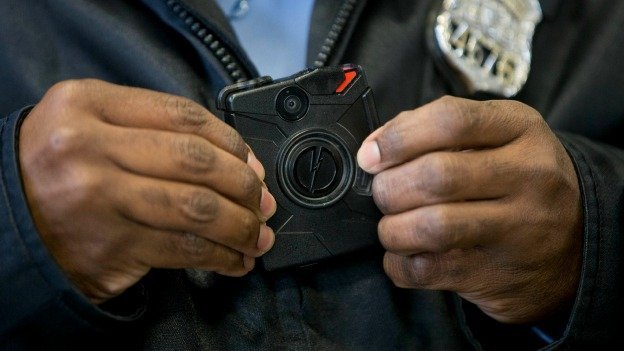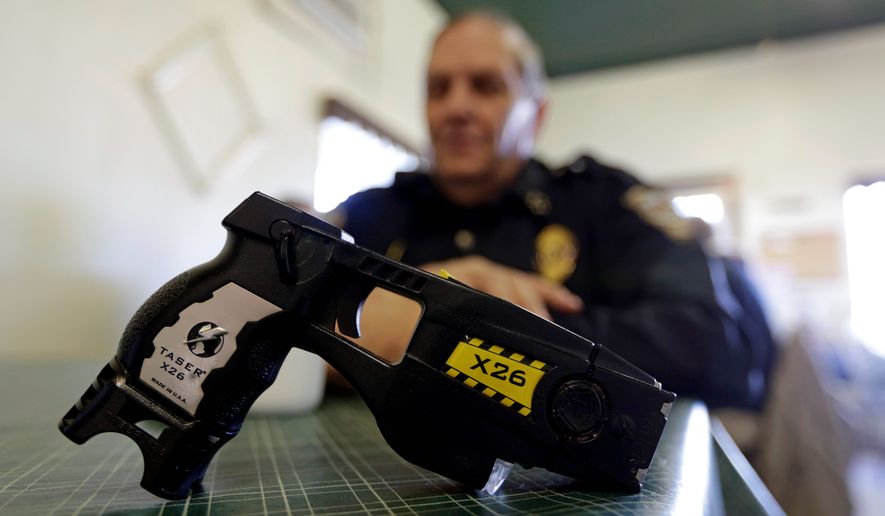 Arsenal Attorneys: A National Firm - Offices in Virginia and California
Arsenal Attorneys: A National Firm - Offices in Virginia and California
Arsenal Attorneys: A National Firm - Offices in Virginia and California
Arsenal Attorneys: A National Firm - Offices in Virginia and California
CONTACT US TODAY
800.819.0608
Arsenal Attorneys Host Ilya Somin Presentation 'Political Ignorance'
 Arsenal Attorneys™ hosted a presentation by law professor Ilya Somin from George Mason University’s Antonin Scalia Law School. Professor Somin delivered a presentation of the new edition of his book “Democracy and Political Ignorance: Why Smaller Government is Smarter.”
Arsenal Attorneys™ hosted a presentation by law professor Ilya Somin from George Mason University’s Antonin Scalia Law School. Professor Somin delivered a presentation of the new edition of his book “Democracy and Political Ignorance: Why Smaller Government is Smarter.”
Professor Somin teaches constitutional law and property. He is also a scholar of the CATO Institute and a frequent blogger for the Washington Post’s Volokh Conspiracy.
He has testified before the US Congress twice: once on the subject of drone warfare and once on the subject of Sonia Sotomayor's record on property rights, during hearings for her nomination as a Supreme Court justice. Professor Somin has been featured in the New York Times, the Wall Street Journal, USA Today, CNN, National Review, Forbes, Los Angeles Times, and the Daily Caller.
He is the author of The Grasping Hand: "Kelo v. City of New London" and the Limits of Eminent Domain, which expands on his work on property rights. He is co-author of A Conspiracy Against Obamacare: The Volokh Conspiracy and the Health Care Case. Professor Somin is also co-editor of Eminent Domain in Comparative Perspective.
Ilya Somin was born in the Soviet Union, where his family were subject to material poverty and political indoctrination. At age 5, his family emigrated to America.
To purchase a copy of "Democracy and Political Ignorance" at a special discount, contact Arsenal Attorneys at 703-291-3312.
News Clipping: Arsenal Attorneys Use Police Body Camera in Victory for Client
From WAMU Radio in Washington, DC:
Police Said She Had An Open
Container. Her Lawyer Asked
For Body Camera Video.
 Last month, defense attorney George Lyon picked up the type of case that doesn't really make the news. His client had been arrested in Northeast D.C. while visiting friends in her old neighborhood, and charged with possessing an open container of alcohol.
Last month, defense attorney George Lyon picked up the type of case that doesn't really make the news. His client had been arrested in Northeast D.C. while visiting friends in her old neighborhood, and charged with possessing an open container of alcohol.
"So I said, 'Well, were the officers wearing body cams?' And she said yes. And I said, 'Well, then let’s get the body cam evidence and see what it shows.' So I asked the prosecutor for the body cam evidence, and it took about a week to get it," says Lyon, who works with Virginia-based Arsenal Attorneys.
“You can see from the video it wasn't sitting by her at all," Lyon says of one of the alcohol containers police alleged she was drinking from when she was arrested.
"So you wonder, why did my client get charged? And apparently she was unhappy with the situation and was saying something to the officer. At minute nine in the body cam tape, he says, 'Do you have an attitude?' And she says, 'Yes, I have an attitude.' Which prompted him to arrest her for having an attitude and charging her for something that she didn’t do," he says.
The charge against Lyon's client, who he declined to name to protect her privacy, was dropped.
Police forces across the country are outfitting officers with body-worn cameras. In D.C., some 1,300 police officers are already using them, and by the end of the year that number is expected to grow to 2,400. The rationale for the cameras has always been that they'll offer an objective record of what happened, providing a tool for holding police accountable and rebuilding trust with communities that have grown distrustful of police.
And with the sheer number of cameras now in use in D.C. — and the amount of footage they collect — that means more of it is filtering into run-of-the-mill criminal cases like the one involving Lyon's client.
"We're starting to get it in a lot of cases now," says John Copacino, who directs the Criminal Justice Clinic at the Georgetown University Law Center.
Copacino says one of the biggest benefits of the footage — in cases big and small — is that it minimizes the reliance on he-said, she-said testimony that can often be unreliable.
"Before, everything was dependent on witness testimony, either from the police or eye witnesses or defendants," he says.
In many cases, he says, the cameras can help police and prosecutors, especially when a decreasing trust in police could affect a jury's willingness to convict. Research has also found that the cameras can simplify an officer's job. In the United Kingdom, officers using the cameras experienced a 22 percent decline in officer time devoted to paperwork and a 9 percent increase in time spent on patrol — roughly 50 more minutes over the course of a nine-hour shift.
Copacino says one of the challenges defense attorneys are facing is getting access to the footage. While D.C. law allows someone who is charged with a crime to view body-worn camera footage in preparation of their defense, prosecutors are allowed to screen and redact the footage.
"They believe that they need to screen their videos for privacy. They're feeling their way on how to do that now," says Copacino. In a case he's taking to trial today, he got three hours of footage — yesterday. "[Prosecutors] asked for blanket protection order in the use of the body-worn camera video, and we're not agreeing to those. But as a result of their being behind on this stuff, we're getting things right now very late."
And there's an additional challenge the emerged in the wake of the police-involved shooting of motorcyclist Terrence Sterling last month: the D.C. police officer who shot Sterling only turned on his camera after firing his gun, leaving no video record of the circumstances that led up to the fatal incident.
The office of the U.S. Attorney for D.C. — which prosecutes most crimes in the city, though not minor charges like open container, which is handled by the D.C. Attorney General — says prosecutors haven't used body-worn camera footage in many cases yet. Copacino says the technology is early in its adoption phase, and he expects footage to play a bigger role in more cases as the years pass.
As for Lyon's client, he says that while her charge was minor, she knew she hadn't done anything wrong. Even with an offer to take a guilty plea and accept only the time already served — a night in jail — Lyon says his client wanted to fight the charge.
“Was this a big case? No, not a big case at all," he says. "But she wasn’t about to take a plea of guilty when she said she was innocent and the evidence proves it."
Arsenal Attorneys Can Update Almost Any NFA Gun Trust with a ‘Restatement of Trust’
 Are you interested in updating, amending or revising your NFA gun trust? Perhaps you need to change your address or add/remove trustees. Or perhaps you just want your trust updated to comply with the new rules for NFA firearms, known as 41F. We can take care of all these changes at once by preparing what’s called a ‘restatement’ of your trust.
Are you interested in updating, amending or revising your NFA gun trust? Perhaps you need to change your address or add/remove trustees. Or perhaps you just want your trust updated to comply with the new rules for NFA firearms, known as 41F. We can take care of all these changes at once by preparing what’s called a ‘restatement’ of your trust.
Arsenal Attorneys™ can update almost any NFA gun trust nationwide. We recommend a ‘restatement’ of your trust using our new Arsenal Gun Trust™ designed for ATF’s new regulations. In legal parlance, a ‘restatement’ is a complete revision of your trust. Effectively it is an amendment of your entire trust. Legally, the restatement would be the same as your original trust, and your original NFA tax stamps would remain valid.
There are at least five reasons why you should request a restatement of your gun trust from Arsenal Attorneys™.
- We can change your existing trust to our new Arsenal Gun Trust™ design which minimizes the burdens of 41F, particularly the new ATF Form 5320.23 (‘Form 23’). In ordinary gun trusts, all the other people in your trust would need to complete the fingerprints and photographs required by Form 23. By using our new Arsenal Gun Trust™ design, you could be the only person who would need to complete Form 23. By the way, most gun trusts only last your lifetime. This means your beneficiaries would need to obtain a new tax stamp to inherit your NFA firearms. We can help you determine how your beneficiaries could be grandfathered by your Arsenal Gun Trust™ so they can keep your trust and your tax stamps.
- By receiving our services you would establish an attorney-client relationship with Arsenal Attorneys™. Many gun trusts were made using do-it-yourself forms, this means it came without any follow up support. In other cases, many attorneys many provided so-called gun trusts without understanding how they are used. When we prepare a restatement of your trust, even for a DIY trust, you become our client. Each of our trusts includes an extensive user’s guide written for you and your successors. If you need help, we’re here for you. If your successors need help, they’ll know to contact us.
- We have the expertise you need. Our law firm is a leader in the field of firearms law. That’s why the American Bar Association has asked us to teach gun trust law to their members in each of the last three years. We know of no other law firm or attorney offering our cutting edge solutions for the NFA regulations that came into effect in 2016.
- We’re nationwide. We’re probably the only law firm in America offering direct attorney-client relationships to gun trust clients in almost every state. We use no middle man. If you or your successors live in another state, it’s likely we could help.
- A restatement is cost-effective compared to a partial amendment. The rules of professional ethics as well as liability concerns would require a lawyer to examine your existing trust line-by-line before making an amendment of any part of it. He/she would need to charge you for the time needed to complete that review, then the drafting of the amendment would be an additional fee. We’ve organized our ‘restatement’ process so that a complete restatement almost certainly costs less than a partial amendment. We can offer this cost savings to clients because our system and volume enables us to be efficient.
In conclusion, how do you decide whether to get a restatement? You can probably find the answer in your gut. For example, have recent changes in ATF regulations discouraged you from registering new NFA firearms? Are you concerned your gun collection will cause headaches for your loved ones when you’re gone? Do you have questions, but no one will give you a straight answer? If you have felt this way, contact us.
Arsenal Attorneys™ have served thousands of clients nationwide. Our Arsenal Gun Trust™ is designed to help you and your loved ones register, handle, and inherit firearms, particularly those regulated by the National Firearms Act, such as silencers, short barrel rifles, and machine guns. Our firm consists over 27 attorneys licensed to serve the more than 40 states which recognize the right to own NFA firearms. Additionally, we have represented small and large businesses, US presidential campaigns, plaintiffs in Second Amendment litigation, criminal defendants, families requesting estate plans, and more. From our office near Washington, DC we offer high caliber services for reasonable fees. Contact us to discuss your questions today.
Arsenal Attorneys Near Victory in 2nd Amendment Challenge to DC Taser Ban
 The government of the District of Columbia confirmed it will not enforce its stun-gun ban against three residents represented by Arsenal Attorneys’ George Lyon. Our clients, a political blogger, a nurse and an armed-robbery victim, challenged the stun-gun ban as an unconstitutional infringement of their Second Amendment rights. Additionally, the DC Council has signaled it will voluntarily repeal its stun-gun ban, albeit under pressure from our clients’ lawsuit. The litigation of this case has halted for 90 days to allow DC to enact the legislation necessary for the repeal.
The government of the District of Columbia confirmed it will not enforce its stun-gun ban against three residents represented by Arsenal Attorneys’ George Lyon. Our clients, a political blogger, a nurse and an armed-robbery victim, challenged the stun-gun ban as an unconstitutional infringement of their Second Amendment rights. Additionally, the DC Council has signaled it will voluntarily repeal its stun-gun ban, albeit under pressure from our clients’ lawsuit. The litigation of this case has halted for 90 days to allow DC to enact the legislation necessary for the repeal.
In comments to the Washington Post, George Lyon said these developments were “a first step to greater Second Amendment rights for D.C. residents.” He added, “I think they have effectively conceded that the ban is unconstitutional. They did not contest my showing that my clients were likely to prevail on the merits.”
An excerpt from a report on this case by Washington Times reporter Andrea Noble follows.
D.C. lawmakers are moving to repeal a ban on ownership of stun guns after residents challenged the law’s constitutionality in a federal lawsuit.
Attorneys representing the city agreed this week to a stipulation that allows the three D.C. residents who filed the lawsuit to obtain and possess Tasers in their homes.
The lawsuit will be placed on hold while the D.C. Council considers legislation that would make it legal for residents to possess and carry stun guns and also do away with the city’s requirement that people register pepper spray with the Metropolitan Police Department.
Stun guns are banned in five states as well as numerous cities and municipalities, though such laws are likely to come under increased scrutiny as Second Amendment supporters broaden their attacks on regulations that limit self-defense options.
Attorney George Lyon, who is representing the three residents challenging the law, filed the lawsuit this summer after a U.S. Supreme Court ruling brought into question the legality of a Massachusetts ban on stun gun ownership.
Mr. Lyon said the Supreme Court ruling, which threw out a Massachusetts court ruling upholding a woman’s criminal conviction for carrying a stun gun in violation of state law, “made it pretty clear that it’s going to be difficult to justify prohibiting owning a Taser or a stun gun.”
D.C. Council Chairman Phil Mendelson agreed with the assessment and introduced legislation to do away with the city’s stun gun ban on Sept. 20.
“We have a complete ban on stun guns right now, and I think it’s reasonable to expect that the ban would not hold up,” Mr. Mendelson said.
A spokesman for D.C. Attorney General Karl Racine declined to discuss the reason why the city opted to pursue legislation over litigation, noting that the lawsuit is still pending.
On Monday U.S. District Judge James Boasberg issued an order in the case stating that “the parties have worked out an agreement to accommodate the named plaintiffs while the Council for the District of Columbia enacts new legislation relevant to this case.”
As part of the agreement, the District admits no liability or wrongdoing, and the three plaintiffs in the case — a conservative blogger, an armed robbery victim and a nurse who works night shifts — will be allowed to obtain and possess Tasers at their homes while the legislation is debated.
“The city made no attempt to defend the constitutionality of the law,” Mr. Lyon said.
Legislation introduced by Mr. Mendelson and Kenyan McDuffie, chairman of the D.C. Council’s Judiciary Committee, would make possession of a stun gun legal to those over the age of 18 and use of the devices legal only “in the exercise of reasonable force in defense of person or property.” It also would require venders who sell more than five stun guns or self-defense spray canisters a year to register with police.
As it’s currently written, Mr. Lyon said he would not have any objections to the proposal.
“If the bill is substantially restricted, we will have something to fight about,” the attorney said.
As the bill works its way through the legislative process, Mr. Mendelson said he’s unsure whether D.C. police or the city attorney general will “be comfortable” with the current draft or suggest changes.
“The bill goes very far toward deregulating stun guns,” the council leader said, noting there is no requirement to register a device with police. “My view is that stun guns are not lethal in the same way firearms are. Therefore, a regulatory scheme similar to firearms is more difficult to rationalize.”
The District’s firearms laws are considered among the strictest in the country, with gun owners required to register their weapons with police and take training courses. To obtain a concealed carry permit, handgun owners must demonstrate a “good reason” in order to qualify.
The Supreme Court’s March ruling did not overturn the Massachusetts ban on stun guns outright. But Second Amendment advocates say it did lay the groundwork for challenges to other bans of nonlethal items meant for self-defense.
The ruling rejected the arguments invoked by the Supreme Judicial Court of Massachusetts, in which judges ruled that stun guns were not protected under the Second Amendment because they “were not in common use at the time of the Second Amendment’s enactment.” The case was sent back to the lower court, where the charges were eventually dropped.
[End of Excerpt]
Arsenal Attorneys File Lawsuit Challenging Taser Ban in District of Columbia
 WASHINGTON, DC, AUG. 2, 2016--Today Arsenal Attorneys™ filed a suit in the US District Court in Washington, DC on behalf of three plaintiffs challenging the District of Columbia's ban of Tasers® and other non-lethal electronic arms.
WASHINGTON, DC, AUG. 2, 2016--Today Arsenal Attorneys™ filed a suit in the US District Court in Washington, DC on behalf of three plaintiffs challenging the District of Columbia's ban of Tasers® and other non-lethal electronic arms.
The plaintiffs are asking the court to declare DC’s ban on non-lethal electronic self-defense devices unconstitutional in violation of the Second Amendment. A successful outcome for the plaintiffs would likely to lead to repeal or challenges of similar anti-self-defense laws in other jurisdictions. Several states currently ban possession and/or carry of electronic arms, including New York, New Jersey, Rhode Island, and Hawaii. In addition, a number of municipalities ban electronic arms, including Baltimore City and County and New Orleans, and various smaller cities across the country.
Arsenal Attorneys™ filed their clients’ case, Wright v. District of Columbia, against the District of Columbia and Metropolitan Police Department Chief Cathy Lanier. An application for a preliminary injunction will be filed as soon as the defendants are served.
The lead plaintiff is Crystal Wright (pictured), a public relations professional, political commentator and author. Ms. Wright publishes a blog entitled “Conservative Black Chick.” She is also author of the newly released book by Regnery Publishing titled "Con Job: How Democrats Gave Us Crime, Sanctuary Cities, Abortion Profiteering, and Racial Division." Court documents recite that Ms. Wright has been cyber-stalked and threatened for her outspoken political beliefs. Another plaintiff is Brendan Turner, who has twice been robbed at gunpoint in DC. The third plaintiff is Traci Dean, a nurse who often works late hours. All three plaintiffs want a Taser® to protect themselves in appropriate circumstances. Each applied to Taser® International to purchase a Taser® Pulse model and were denied based on DC law which prohibits a Taser® or stun gun just the same as an explosive like a grenade.
Ms. Wright originally considered a firearm for self-defense; however, the District of Columbia’s restrictive gun control laws made that a difficult and long process. Her parents suggested she obtain a stun gun as a short term, non-lethal solution. They were shocked when her attempt to purchase a Taser® online was barred by DC law.
Wright said, “The ban on these non-lethal weapons makes no sense given that it has been legal for several years for law-abiding citizens to use firearms, very lethal weapons, to protect themselves in the District of Columbia.” She continued, “Shooting another human being changes the lives of all involved, even when it is legally justified. There are extremely negative legal, social and psychological consequences I would prefer to avoid, if at all possible.”
The plaintiffs’ attorney, George Lyon, of Arsenal Attorneys™, a national firearms and Second Amendment law firm based in Arlington, VA, said “The Supreme Court has clearly stated that the Second Amendment is not limited to guns. It extends to all arms commonly possessed and used for self-defense. That plainly includes Tasers®, which are legal in the vast majority of states in the country.”
According to Mr. Lyon, his clients’ case became stronger following a US Supreme Court decision in March reversing a Massachusetts conviction for possession of a stun gun on Second Amendment grounds. In that case, Caetano v. Massachusetts, the Supreme Court held that the state court’s decision affirming the conviction was inconsistent with the Supreme Court’s decision in District of Columbia v. Heller. Massachusetts ultimately dropped the charge against the defendant rather than defend its prohibition on stun guns.
Ultimately, attorney Lyon said, “The Taser ban is a remnant of DC’s anti-self-defense mindset that the Supreme Court rejected in the landmark Heller decision. It’s time for it to go.”
D.C. currently classifies Tasers and stun guns as “destructive devices” the same as bombs and poison gas. Attorney Lyon called that classification “nonsense, given that Tasers are not designed to kill or cause permanent injury.” He explained, “A Taser is designed to temporarily incapacitate an assailant so the intended victim can get away and call the police. Police use these devices every day to subdue suspects without significant injury. The U.S. Justice Department has stated that police use of Tasers decrease injuries to both suspects and officers. Ordinary citizens should have access to this self-defense tool for the same reasons.” According to the Taser website, some 18,000 law enforcement agencies are equipped with the device and more than 275,000 Tasers have been sold to the public.
Attorney Lyon understands these issues first hand. He is a DC resident, and he was one of the original plaintiffs of the Heller v. District of Columbia, in which the Supreme Court held in 2008 that the Second Amendment guarantees an individual's right to possess a firearm for self-defense within the home. Lyon was also a plaintiff in Palmer vs. District of Columbia, in which the DC Federal Court overturned DC’s complete ban on the carrying of firearms outside the home in 2014. In addition to his law practice, Lyon is a certified firearms instructor and self-defense expert. He regularly helps clients with gun ownership and carry permits in the District of Columbia, Maryland, and Virginia.
CONTACT OUR FIRM
CONTACT US TODAY
Arsenal Attorneys is committed to answering your questions about estate planning, firearms, business law, litigation, and criminal defense issues.
We'll gladly discuss your case with you at your convenience. Contact us today to schedule an appointment.
LOCATION
4000 Legato RoadSuite 1100
Fairfax, VA 22033
800.819.0608













